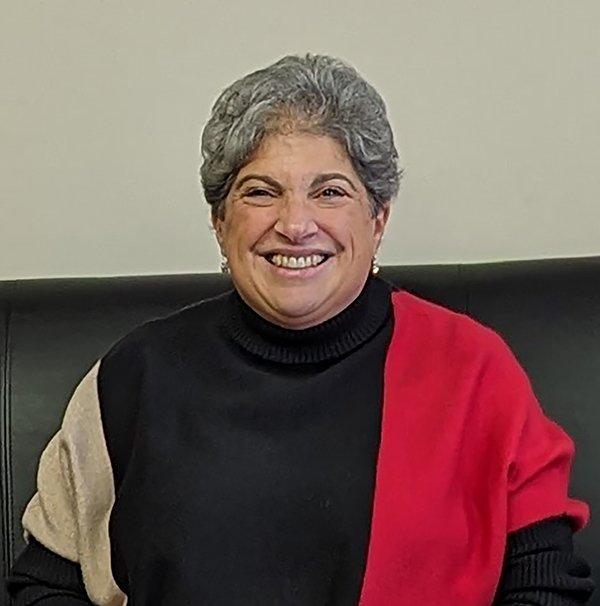Steve Berdos is not Armenian, but he is a fan of Serj Tankian. Inspired by the musician’s advocacy for Armenian Genocide recognition and horrified by the war brought against Artsakh and Armenia by Azerbaijan and Turkey in the fall of 2020, Berdos was compelled to organize an online event last week dedicated to remembering the Armenian Genocide in his capacity as a member of the Attleboro Council on Human Rights (ACHR). “I feel strongly that the responsibility to advocate for change shouldn’t always fall to the group seeking change,” he told the Weekly.
Held on Thursday, April 15, the virtual event featured an impressive group of speakers including Pulitzer Prize winning poet and New York Times bestselling author Peter Balakian, Director of Academic Affairs at the National Association for Armenian Studies and Research (NAASR) Marc Mamigonian, Attleboro Superintendent of Schools David Sawyer, Congressman Jake Auchincloss (D-MA) and RI House Majority Whip Katherine Kazarian. Each added layer upon layer of impact and information to the commemoration, achieving the ACHR’s goal, according to Berdos, of organizing a forum that “covered the Armenian Genocide from an educational, legislative and personal perspective.” As a unique idea, each speaker was introduced by a member of the Council reciting a variety of selections chosen by Berdos specifically for the evening.
ACHR president Laurie Sawyer welcomed participants while crediting Berdos as “the architect of the event.” Sawyer said that she welcomes council members’ suggestions for events based on their passions which was evident when Berdos expressed his desire to hold an event in honor of the Armenian Genocide. “The importance of the speakers at the event was paramount because they are intimately involved in the Armenian community and fighting for protective laws in the legislature and teaching in our schools,” she told the Weekly. Sawyer stressed that while Armenia may be a distant country, survivors of the Genocide fled to the US and their descendants are now members of the community, neighbors and friends. “We need to teach about these historical topics, celebrate the victories and fight for the rights of all people,” she said. The ACHR’s mission is to “promote fair and equal treatment, address discrimination and continue to build a welcoming and diverse community” through education, inter-organizational cooperation, advocacy and community-building.
Leading with the educational perspective was Attleboro Superintendent of Schools David Sawyer, who also happened to be Berdos’ former high school history teacher. “The vision of our district is to be the center of a community united around education,” Sawyer began, setting the tone for remarks focusing on community involvement and responsibility, including the importance of genocide education. The Superintendent explained his role as part of the team developing the curriculum on genocide almost a quarter century ago. The subject, including the Armenian Genocide, is taught in a variety of courses at Attleboro High School, including world history. As they were developing the curriculum, Supt. Sawyer revealed that there were many discussions around safely introducing such a difficult topic to students. “Why do we teach this?” asked Sawyer. “It serves our mission to develop and deliver relevant learning experiences that engage, challenge and inspire all students to maximize their unique potential and improve our world,” he responded. The Superintendent stressed the importance of remembrance and refusing to allow the story to die with the victims. “In this way, we take the regrettable elements of our history and harness them for future good,” he concluded.
Part of remembrance includes the fight against denial, which was addressed by Mamigonian. While explaining that there has been almost universal recognition of the Armenian Genocide in academia and in general society, Mamigonian also discussed the coordinated and organized denialist campaign by the Turkish government and entities at its disposal which has evolved over time. He provided a litany, “a soup to nuts menu,” of denialist rhetoric, stating, “Denial in its purest form does not need to convince people of its veracity to be effective. It inflicts sufficient damage just by creating a spurious discussion that creates a haze of doubt around the facts.” Denial not only denigrates the victim group, but seeks to create an endless circular debate over the facts. Ultimately, the goal is for the subject to be the debate about the Armenian Genocide “rather than the planned death of more than a million people and the absolute destruction of Armenian existence and lands where they had lived for a millennia,” said Mamigonian.
Mamigonian told the Weekly that he welcomed the opportunity to participate in the event in part because he was impressed by Berdos’ passion for the program, and it would be another chance to work with Peter Balakian. “[He] has brought so much insight and passion to informing people about the Armenian Genocide but also about Armenian’s contributions to art and culture for so long now,” said Mamigonian.
Balakian served as keynote speaker and focused his remarks on the idea of an Armenian cultural voice. He took the participants on a journey beginning with the days prior to the Genocide when the Armenian voice was heard through the important writers of the time, including Atom Yarjanian (Siamanto), Daniel Varoujan and Krikor Zohrab. “Their voices are a part of us, of our collectivity, of our force as a culture on the planet,” he said. In the decades post-Genocide, there was relative silence of the community’s cultural voice as the survivors were dispersed throughout the world and trying to rebuild broken lives. Particularly poignant during his remarks was Balakian’s listing of the many countries to which the survivors of the Genocide fled. Balakian also brought up William Saroyan as a lone Armenian voice during this time. “His writing gave Armenian communities worldwide a sense of identity,” said Balakian.
As the baby boomer generation of Armenian Americans came of age in the last quarter of the 20th century, Armenian voices became increasingly more prominent. For those fortunate enough to grow up with some privilege and access to cultural spaces, they “had the opportunity to carry pieces and fragments of the Armenian story to the wider world,” Balakian explained. As the centennial of the Genocide approached, Armenian voices grew louder and Balakian felt a palpable shift. This was demonstrated when the New York Times devoted three front-page issues to the Armenian Genocide complete with large color photos and “with special focus on the corruption of Turkish government denial.” “We had crossed over into the mainstream,” Balakian noted.
After decades of hard work by Diasporan Armenian communities worldwide, “the Armenian voice has taken hold,” said Balakian, despite the efforts of the perpetrators to silence it. The process continues to evolve and the Republic of Armenia faces serious challenges, particularly after the tragic attacks in the fall of 2020, and still “there has been no justice,” he stressed.
The US government is frequently mentioned when discussing justice for the Armenian people.
Rep. Auchincloss, who represents the fourth district of Massachusetts including Attleboro in the US House of Representatives, highlighted the importance of taking on the mantle of moral leadership demonstrated by his signature on the letter calling on Pres. Biden to recognize the Armenian Genocide. In addition, he said that the Armenian Caucus was one of the first he joined upon being elected to Congress. As a descendant of those who fled the pogroms in Russia and Ukraine, Auchincloss recognizes the “importance of calling these events what they are.”
While Rep. Auchincloss discussed national legislative initiatives, Rep. Kazarian, for her part, outlined both the personal and statewide importance of Rhode Island’s passage of Holocaust and Genocide education legislation in 2016. The bill was especially meaningful to her as a co-sponsor and great-grandchild of Armenian Genocide survivors. As Rep. Kazarian was working on the bill, she realized a coalition was building. “It was beautiful to see communities who have suffered so much work together to get the legislation passed,” she said.
As the event drew to a close, it was clear that participants were moved by the program. Notably, the ACHR commissioned a special work for the remembrance by artist Jeff Bartell which was unveiled during the commemoration. The artwork entitled “Spyurk” (Armenian for ‘Diaspora’) will be displayed at Attleboro High School along with the Council’s letter to Pres. Biden and the bilingual lyrics to Tankian’s 2016 song “Artsakh.”

In an interview with the Weekly, Bartell explained the significance of the piece: “The flower petals being pulled away from the center of the plant represent the movement of the people to separate parts of the world. One petal remains as a representation of the homeland. An additional layer of meaning is the type of flower itself—which is a Myosotis plant, known colloquially as ‘forget-me-not’ flowers. The forget-me-not flower expresses the theme of eternal remembrance and is also meant to symbolically evoke the past, present and future experiences of the Armenian people.” Prints of the artwork are available for purchase through the artist’s website with all proceeds going to the Armenian Museum of America in Watertown, MA.
Bartell went on to explain that while he is not Armenian, one of his closest friends is, and that is where he learned about the Genocide. Thanks to this friendship, he feels a duty to increase awareness and education about the events of 1915, and using his art for these purposes is important to him. “It’s important to me as a creator to reflect on the culture around me and if possible, seek opportunities to use my talents in ways that might evoke a positive transmutation from the traumas of our past,” he revealed to the Weekly.
As an event dedicated to educating about the Armenian Genocide and remembering those lost to it, the evening was a success, orchestrated by a man (Berdos) dedicated to human rights and joining the efforts of a community fighting for justice. “We remember today all those who were killed in a final solution defined by genocidal racism and those who suffered for the rest of their lives as they moved forward,” said Balakian. “We are the beneficiaries of their courage and endurance and talent. They carry us and we carry them with us.”



Thank you very much for your support and collaboration with this project, Pauline. I’m thrilled with how this forum turned out. You did a great job summarizing the different speakers. It has been a pleasure working on this with you and the Attleboro Council on Human Rights.